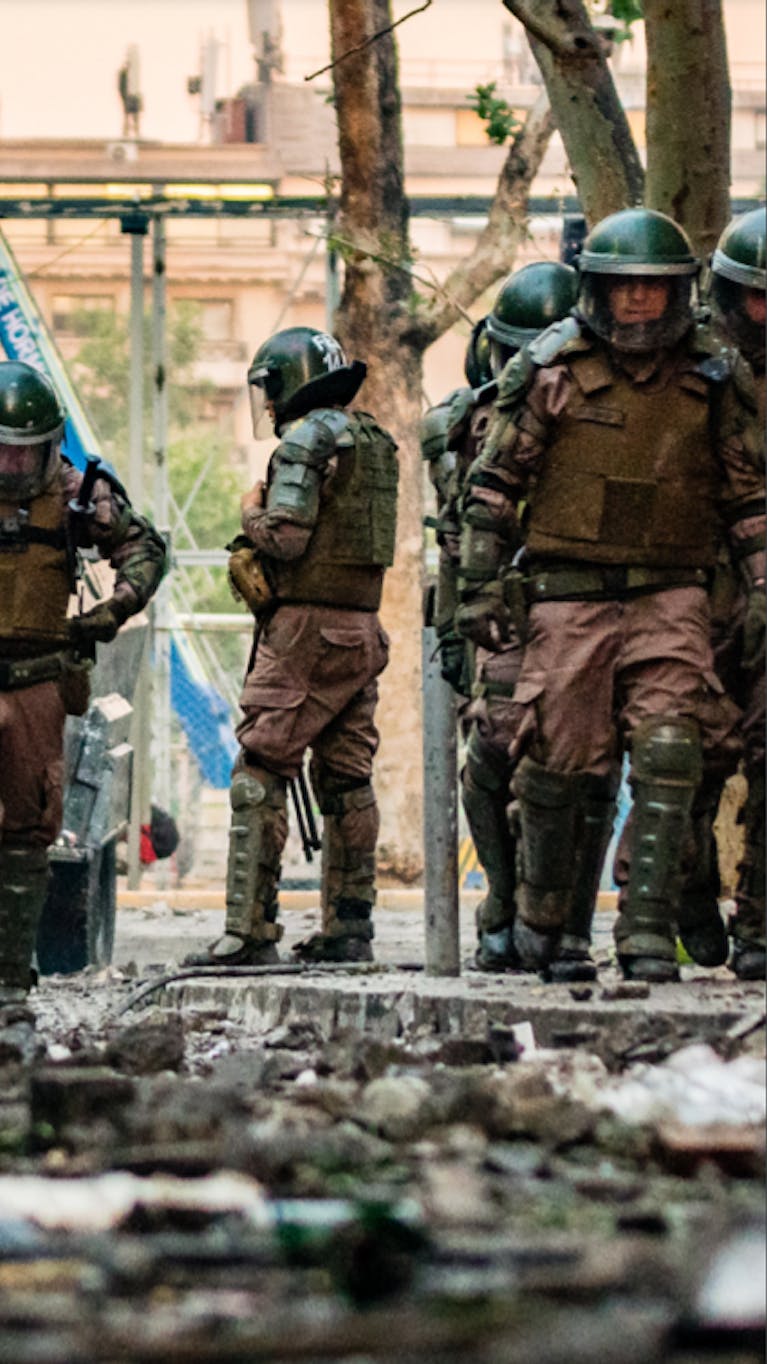
Chile: Criminal liability of commanders for omission in connection with crimes committed during the social unrest
Executive Summary
The purpose of this report is to analyse the criminal liability for omission of the authorities and commanders of the institutions involved in the control of public order in relation to the protests that began on 18 October 2019 in Chile. To this end, on the one hand, the possible application of Law 20.357 in relation to crimes against humanity is analysed, as well as the individual responsibility for omission established in Art. 35 of the same law. The invocation of this legislation depends in the first place on the existence of the so-called ‘international’ or ‘contextual element’ in the events, which rests on the possibility of establishing a ‘widespread’ or ‘systematic attack’; the existence of a policy behind the commission of the acts, as well as their commission by members of certain organisations. These elements make it possible to link the different acts to each other, as well as to the organisation by which they were committed, ruling out the possibility that they are simply isolated acts, or randomly connected, and instead linking them to a common organisational platform. In addition, the appropriateness of applying ‘superior responsibility’ in case of omission (contained in Art. 35 of the aforementioned law) was reviewed, which assumes the establishment of a relationship of hierarchy and subordination, the capacity to act, as well as the capacity to avoid the result.
Secondly, and in the event that it is considered that the acts do not constitute crimes under international criminal law, the category of Improper Omission or failure to act becomes relevant. This allows those who have a legal duty to prevent (or report) a harmful result that could have been avoided to be held accountable. This category, typical of Domestic Criminal Law, is an alternative for demanding the responsibility of the commanders in this case, without the need for proof of the so-called ‘contextual element’ typical of crimes under International Criminal Law.
In this sense, the applicability of Art. 150 letters A and D of the Chilean Criminal Code, which also takes into account a variant of superior responsibility for omission, is briefly analysed.
Conclusions
Notwithstanding the additional investigations to be carried out in the context of the various proceedings initiated as a result of the events that gave rise to this report, the available factual background provides serious indications that the authorities and commanders of the institutions involved in the control of public order may be held criminally liable for their failure to act in the violent events that occurred after the demonstrations.
This criminal liability for omission can be demanded by applying Law 20.357 in the event that the so-called international element is considered to be present. This, although debatable, can at least in principle be sustained given that the multiple events that occurred do not appear to be merely coincidental, but rather appear to be supported by the organisational environment in which they take place, and the behaviour of its authorities at the time of the events.
The criminal offence of Art. 150 D also may be applied (where appropriate), as well as the figure of omissive intervention contained therein. It has been verified that, for the serious events that occurred after the social unrest, there are various criminal tools to demand the responsibility of those authorities who should have and could have prevented the events.